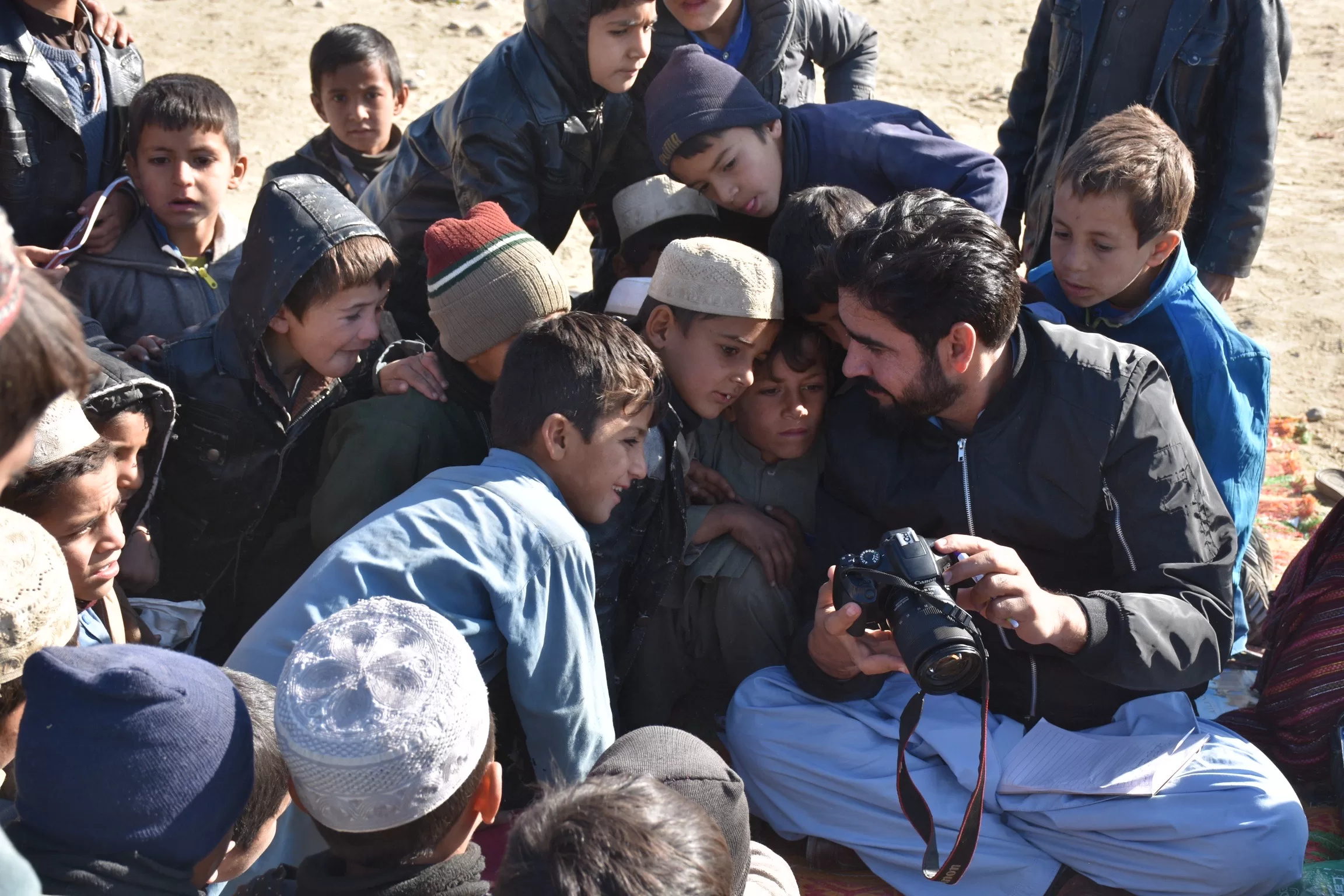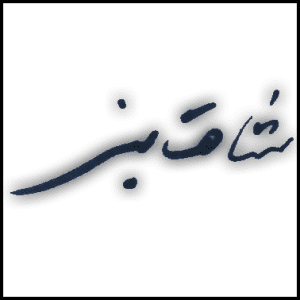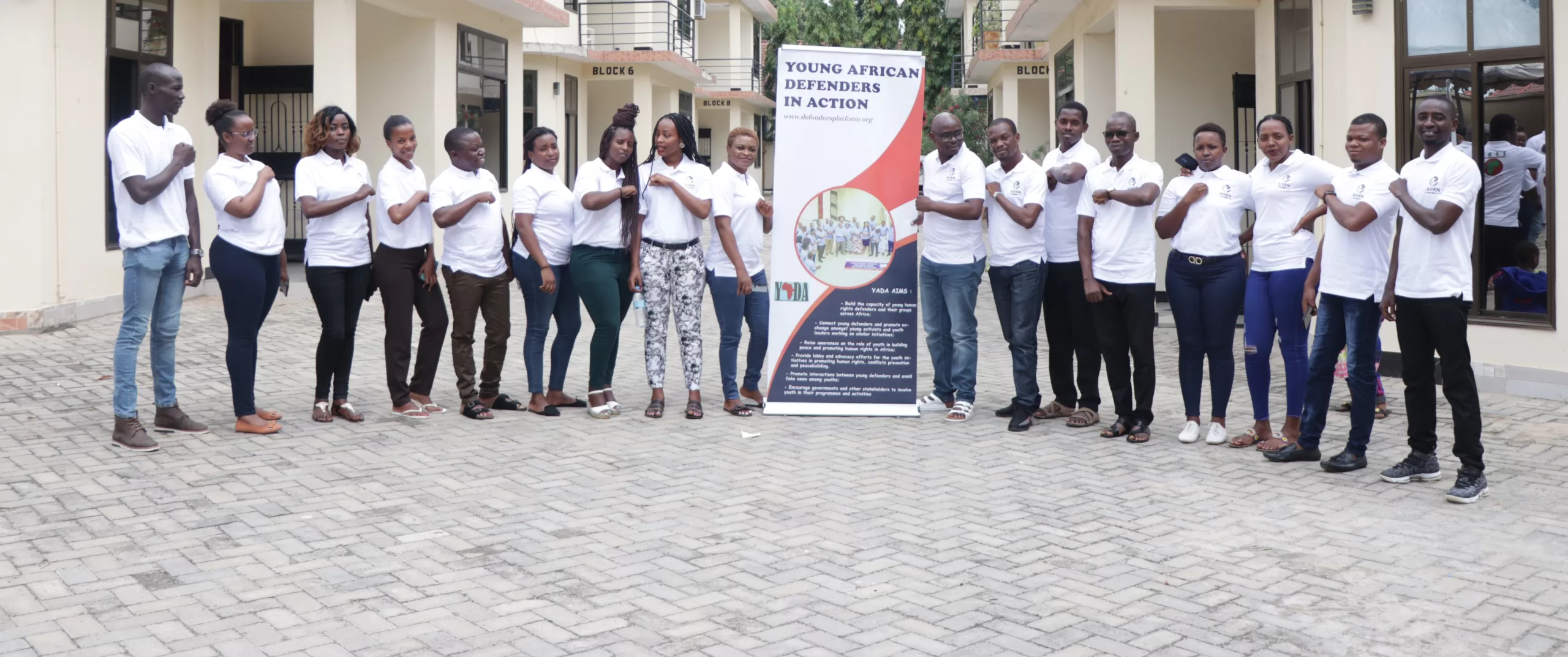Index relies entirely on the support of donors and readers to do its work.
Help us keep amplifying censored voices today.

Matiullah Wesa established Pen Path in 2009 to campaign for greater access to education for boys and girls in Afghanistan. In this role, Wesa visited 34 provinces of the country and almost all districts. Pen Path’s first step was to re-open closed schools, after The Taliban had previously shut them down in the remote villages of Afghanistan. Prior to The Taliban’s takeover, Pen Path acted as mediator between the government and the Taliban, while also encouraging local elders to collaborate with them to re-open those schools. It is estimated by Pen Path that their team, to date, has re-opened more than a hundred schools and established a number of new schools across the country.
To date, Pen Path has also provided stationery and children’s books to approximately 300,000 children. Pen Path also established 39 libraries in rural areas to provide access to books for the general public (especially women who could not go to school due to restrictions).
To further extend the reach of education across Afghanistan, Pen Path launched a programme of mobile classes delivered via a specially designed motorbike fitted with a computer screen and speakers, as well as a bookcase, teaching materials and a mobile library.
On 27 March 2023, Matiullah Wesa was arbitrarily arrested by the Taliban’s General Directorate of Intelligence (GDI), while returning from evening prayer. The day after his arrest, the GDI raided his house and confiscated his personal mobile and laptop. On 29 March, the Taliban spokesperson confirmed his arrest, accusing him of illegal activities. His family have not been allowed to visit him and there has been no avenue to challenge the legality of his detention.

Over the first year of the Russian invasion of Ukraine, Olesya organised partisan anti-war actions in her small town of Arkhangelsk. This included posting anti-war leaflets and posting anti-war messages on her blog and the chat rooms set up for students based at her university. Olesya took the risks to do this to “counter Russian propaganda and promote alternative information about the war in Ukraine among students and other residents of my city.”
As a result of these acts, Krivtsova was placed under house arrest in January, and banned from using the internet on the charges of discrediting the Russian army and justifying terrorism. It has been reported that her classmates reported her to the authorities after taking screenshots of her anti-war messages. She was also added to the country’s official list of terrorists and extremists. Due to the severity of the charges, she faced up to 10 years in prison. In March 2023, Olesya uploaded a video of her cutting off her monitoring tag and she fled Russia for Lithuania.
 Xinjiang Victim’s Database (China)
Xinjiang Victim’s Database (China)The Database aims to make Xinjiang and the mass-incarceration policies taking place there as transparent and accessible for the world at large as possible. This is done primarily by documenting the individual victims and their situations in as much detail as available data allow. In addition to this, they maintain a number of side databases, such as monitoring the facilities where victims are held, the villages/neighbourhoods they come from, the individuals in the government/police linked to their detentions, and the collection/translation of various primary-source materials, such as eyewitness accounts or government/police/court records.
The Database serves as a free-to-use tool for researchers, journalists, and advocates. Additionally, it provides several specific tools to the public: an ID search that allows 10,000s of internal and public documents held by the database to be searched for information about specific people, a name translator to convert Chinese pinyin versions to more appropriate Turkic versions (e.g. Memet instead of Maimaiti), and a translation bank that combines the Database’s 10 in-house dictionaries to assist with translation of Xinjiang-related texts.

 The AHRN works to support and protect human rights defenders (HRDs) across the Great Lakes region of Africa to ensure they can speak up and protect human rights and democracy across Africa.
The AHRN works to support and protect human rights defenders (HRDs) across the Great Lakes region of Africa to ensure they can speak up and protect human rights and democracy across Africa.The main goal of AHRN is to promote and protect the work of Human Rights Defenders, including activists, bloggers, journalists, feminists, environmental defenders and many others. This work includes advocating for and protecting HRD at risk. It does this through its protection programme and shelter city scheme, which started in 2017 with the launch of the Dar es Salaam Shelter City which is a regional temporary relocation program for at-risk HRDs operation in the African Great Lakes Region. In 2019, this scheme was expanded after the launch of the shelter city Benin to provide temporary relocation to at-risk human rights defenders from Central and west African countries especially those from Francophone countries. As well as direct support, AHRN also facilitates engagement between HRDs in Africa to share capacity building expertise, exchange experience and foster stronger relationships of support and solidarity.
The organisation also provides a platform to more than 175 grassroots civil society organisations that have proven capacity to implement human rights projects in Africa. As a result, AHRN has been able to establish a platform of local HRDs who have decided to organise themselves to improve their working environment and security. This networked approach has defined AHRN’s work. In 2021, they created the YADA Network (Young African Defenders in Action) following a workshop attended by young people from 18 African countries. While it is present in 18 countries, the AHRN’s goal is to extend the Network to 30 countries by the end of 2023. They also created Africanactivists.com, which is a specialised social media platform for HRDs to connect with others and share information in real time.
This week it emerged that a British parliamentary researcher who worked closely with senior MPs, working on UK security issues, had been arrested for espionage on behalf of the Chinese state. While the allegations have been denied, the focus of the coverage this week has been largely on the implications for UK security and the acknowledgement of the threats of Chinese spying on UK institutions.
However, there are some other serious consequences. At Index, we have reported on the long-arm of Chinese repression and their targeting of dissidents abroad. Our Banned by Beijing reports have focused on the influence of the Chinese state in the academic sphere through Confucius Institutes and funding in UK universities. The threat to academic freedom is serious enough.
At Index, we rely on the testimonies of dissidents to expose what is happening in repressive regimes where dictators and tyrants oppress the media and their peoples in order to maintain tight control. We can only achieve this through close relationships based on trust. They have to be convinced that we will do everything we can to keep them safe and that by speaking to us their situation and that of their families will be protected. We take that responsibility very seriously.
Dissidents have to feel that they are safe to discuss their experiences with Parliamentarians and not worry about their reports getting back to any regime, including the Chinese state, they have to be assured that by speaking privately to decision makers they will not be endangering their families remaining in China.
Our Banned by Beijing reports have repeatedly exposed how the CCP has targeted the families of dissidents as a tool to try and coerce people into silence. Privacy and security is vital for many dissidents to feel comfortable explaining their experiences; but for that they need to trust us.
My fear is that this scandal will undermine information gathering as the trust between Parliament and Chinese dissidents will have been broken. And it isn’t just a matter for those of us who have an interest in the repression dished out by the CCP, it is also a matter of huge concern for those of us who want dissidents to feel safe, wherever they come from.
Dissidents who have fled their country to shine a light on repression have left their lives behind. They have made huge sacrifices in order to excise their freedom of speech. They have done it so that their voices can be heard and the tyrant that runs their country can be exposed. Historically the saftest place to do that has been the British Parliament – where MPs have privilege and use the stories of dissidents to challenge the status quo. By undermining this bond of trust those who spy for a despotic regime haven’t just undermine the cause of Chinese dissidents – they have undermined the cause of all dissidents.
That trust must be rebuilt as a matter of urgency.
The Summer 2023 issue of Index looks at neurodiversity, the term coined in the late 1990s to identify and promote the positives of variation in human thinking which has become more widely used in the past few years. Are old stereotypes still rife? Has the perception of neurodiversity improved? If not, was this because of censorship? Using neurodivergent voices, we wanted to know about this in a global context.
The majority of the articles are written by neurodivergent people, as we wanted to put their voices front and centre. Many said they did have more of a voice, awareness had shot up and the word “neurodiversity” empowered and welcomed a growth in onscreen representation. However, at the same time it was clear that conversations around neurodiversity were playing out along society’s current fault-lines and were far from immune.
Mind matters, by Jemimah Seinfeld: The term neurodiversity has positively challenged how we approach our minds. Has it done enough?
The Index, by Mark Frary: The latest in free expression news, from an explainer on Sudan to a cha-cha-cha starring Meghan and King Charles.
Bars can't stop a bestseller, by Kaya Genç: Fiction is finding its way out of a Turkish prison, says former presidential hopeful and bestselling writer
Selahattin Demirtaş.
Don't mention femicide, by Chris Havler-Barrett: Murdered women are an inconvenience for Mexico’s president.
This is no joke, by Qian Gong and Jian Xu: The treatment of China’s comedians is no laughing matter.
Silent Disco, by Andrew Mambondiyani: Politicians are purging playlists in Zimbabwe, and musicians are speaking out.
When the Russians came, by Alina Smutko, Taras Ibragimov and Aliona Savchuk: The view from inside occupied Crimea, through the cameras of photographers banned by the Kremlin.
The language of war and peace, by JP O’Malley: Kremlin-declared “Russophobe foreign agent and traitor” Mikhail Shishkin lays out the impossible choices for Russians.
Writer's block, by Stacey Tsui: Hong Kong’s journalists are making themselves heard, thanks to blockchain technology.
The Russians risking it all, by Katie Dancey-Downs: Forced to sing songs and labelled as extremists, anti-war Russians are finding creative ways to take a stand.
The 'truth' is in the tea, by Jemimah Steinfeld: Spilling the tea on a London venue, which found itself in hot water due to a far-right speaker.
Waiting for China's tap on the shoulder, by Chu Yang: However far they travel, there’s no safe haven for journalists and academics who criticise China.
When the old fox walks the tightrope, by Danson Kahyana: An interview with Stella Nyanzi on Uganda’s latest anti-LGBTQ+ law.
Would the media lie to you?, by Ali Latifi: Fake news is flourishing in Afghanistan, in ways people might not expect.
Britain's Holocaust island, by Martin Bright: Confronting Britain’s painful secret, and why we must acknowledge what happened on Nazi-occupied Alderney.
The thorn in Vietnam's civil society side, by Thiện Việt: Thiện Việt: Responding to mass suppression with well-organised disruption.
Not a slur, by Nick Ransom: What’s in a word? Exploring representation, and the power of the term “neurodiversity” to divide or unite.
Sit down, shut up, by Katharine P Beals: The speech of autistic non-speakers is being hijacked.
Fake it till you break it, by Morgan Barbour: Social media influencers are putting dissociative identity disorder in the spotlight, but some are accused of faking it.
Weaponising difference, by Simone Dias Marques: Ableist slurs in Brazil are equating neurodivergence with criminality.
Autism on screen is gonna be okay, by Katie Dancey-Downs: The Rain Man days are over. Everything’s Gonna Be Okay star Lillian Carrier digs into autism on screen.
Raising Malaysia's roof, by Francis Clarke: In a comedy club in Malaysia’s capital stand up is where people open up, says comedian Juliana Heng.
Living in the Shadows, by Ashley Gjøvik: When successful camouflage has a lasting impact.
Nigeria's crucible, by Ugonna-Ora Owoh: Between silence and lack of understanding, Nigeria’s neurodiverse are being mistreated.
My autism is not a lie, by Meltem Arikan: An autism diagnosis at 52 liberated a dissident playwright, but there’s no space for her truth in Turkey.
Lived experience, to a point, by Julian Baggini: When it comes to cultural debates, whose expertise carries the most weight?
France: On the road to illiberalism? by Jean-Paul Marthoz: Waving au revoir to the right to criticise.
Monitoring terrorists, gangs - and historians, by Andrew Lownie: The researcher topping the watchlist on his majesty’s secret service.
We are all dissidents, by Ruth Anderson: Calls to disassociate from certain dissidents due to their country of birth are toxic and must be challenged.
Manuscripts don't burn, by Rebecca Ruth Gould: Honouring the writers silenced by execution in Georgia, and unmuzzling their voices.
Obscenely familiar, by Marc Nash: A book arguing for legalised homosexuality is the spark for a fiction rooted in true events.
A truly graphic tale, by Taha Siddiqui and Zofeen T Ebrahim: A new graphic novel lays bare life on Pakistan’s kill list, finding atheism and a blasphemous tattoo.
A censored day? by Kaya Genç: Unravelling the questions that plague the censor, in a new short story from the Turkish author.
Poetry's peacebuilding tentacles, by Natasha Tripney: Literature has proven its powers of peace over the last decade in Kosovo.
Palestine: I still have hope, by Bassem Eid: Turning to Israel and Palestine, where an activist believes the international community is complicit in the conflict.
European universities have become increasingly international over the last decade, fostering relationships with researchers, institutions, private companies, and students around the world. While academic internationalisation provides many opportunities, it also presents challenges.
“European academia must recognise that vulnerability to authoritarian and illiberal interference is an undeniable reality in the contemporary context of globalised knowledge production,” the European Commission said in a working document published last year. “Risks encountered in this context crystallise as threats to the principles of academic freedom and integrity.”
The Commission didn’t single out threats from any one country, but its document was published amid heightened concerns about interference from China.
This report asks to what extent Chinese money is being used to fund European universities and to what extent is it eroding academic freedom in the process. The report looks at funding from Chinese companies, Chinese international students, and the protections the EU and UK have in place to prevent undue interference. You can download the report here or view it online using the reader below: